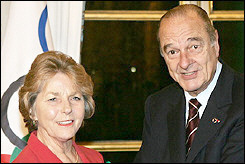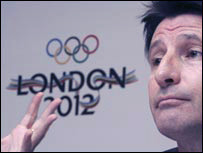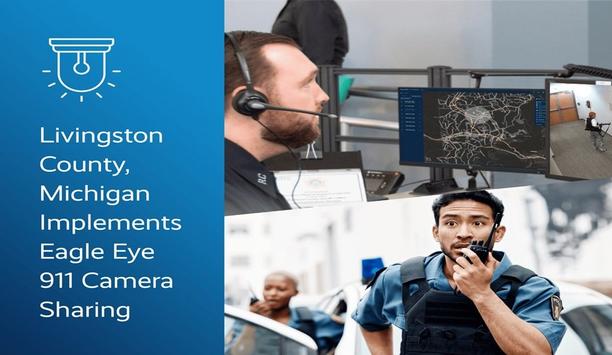 The planning and thinking for the 2012 Olympics is well under way - but there are plenty of big events to secure first, the International Sports Security Summit (ISSS) heard in London recently. Mark Rowe reports.
The planning and thinking for the 2012 Olympics is well under way - but there are plenty of big events to secure first, the International Sports Security Summit (ISSS) heard in London recently. Mark Rowe reports.
Day one saw Olympics speakers to the fore - Peter Ryan, the British former senior police officer who as chief of New South Wales police was in charge of security at the 2000 summer games; and Met Chief Insp Andrew Amery, head of security for London 2012. Police were also among the attenders - from Ireland, Croatia, West Indies (host of the 2007 Cricket World Cup) and South Africa (host of the previous cricket world cup, and hosts of the 2010 soccer world cup). One thread running through the conference was the international nature of world cups and the Olympics - which is stating the obvious, but from the point of view of security management, means threats are international.
To take cricket, the England Test team is abroad each winter, and risks to the players (crooked book-makers, terrorists) could come from anywhere. Equally, the event crowd is international - and strolling around the capital in breaks from the conference, passing for example the uniformed Capes UK ‘heritage wardens’, in London at least security people are used to meeting and greeting visitors from all over. Come the 2012 Games and it will be difficult for security people to avoid the Olympics, for one thing because of the thousands of temporary jobs going.
As at the Sydney Olympics, the authorities may have to turn to volunteers to do the most basic customer care tasks, yet with a security component. With exceptions that prove the rule - think of the Labour Party conference, whose indoor stewards led to the Walter Wolfgang affair last autumn - the UK does not have volunteer security-stewarding. London (and indeed other cities) does have, as the summit organisers Rushmans said beforehand, long experience in securing events - Premiership football every winter weekend, besides annuals such as the Flora Marathon and mid-summer open-air concerts, up to the size of Live 8 in July 2005. Event security then was by Showsec, whose southern regional manager Simon Battersby was among those at the ISSS.
Also there were a couple of men from the Private Security Authority, the Irish equivalent of the British SIA. While the SIA lost out to the football authorities last year - the Government gave the nod to safety qualifications for soccer stadium stewards rather than a SIA licence - the PSA is looking to ‘licence contractors providing event security services’, to quote its website (www.psa.gov.ie).
Cole shaken
One gauge of how relevant a gathering is: the newspaper ink devoted to either the event itself or its topic, during the show. ISSS scored on both counts: The Sun on January 20 devoted a page to Chelsea footballer Joe Cole, who reportedly was shaken by written death threats sent to the club’s training ground in Surrey. The Guardian meanwhile reported ‘Olympics organisers warned of new terrorist threats’ - covering what Peter Ryan told the conference on the first day. Peter Ryan picked up Professional Security’s copy of The Guardian, read it, and remarked: “Nobody warned anybody about anything; it’s just a new environment.” By that he meant terror threats - and not only suicide bombers, but perhaps poisoned food and water to, say, the athletes’ village. As he said, the main venues would have the (proverbial) ring of steel, leaving public spaces and infrastructure around the event relatively more vulnerable. Aplhus Hinds, of Cyberrisk Associates, on that score went on to describe transport as the ‘poor relation’ of an Olympics - and yet if anything went wrong with transportation, it would affect the whole Games.
How do you protect VIP sportsmen in strange overseas places when they have things other than security on their mind? A couple of speakers gave a cricket angle.
Staff from risk consultants Olive Group travelled with the England cricket team on the recent tour of Pakistan. Richard Knowlton, Senior Vice President at Olive, spoke about the intelligence and risk assessment side of protecting sports personalities, and their dependents, while South African Bob Nicholls described close protection of the South African cricket team in India. Richard Knowlton began with a survey of the risks - situational (simply by being there) and personal and reputational (which touches on sponsors, too).
If sports VIPs are not careful and well advised, they can get caught up in local conflict. As Richard Knowlton said, a packed cricket stadium represents a relatively ‘soft’ target, and the impact of a successful terror attack - even a gas attack - would be considerable, while an attack on a sports team would be a symbolic attack on their country. Here he gave the example of the 1972 Munich Olympics. And then there could be a political demonstration or protest, not only at a sporting contest; Richard Knowlton recalled how in 2003 protesters invaded Lord’s cricket ground, once getting into offices by posing as a university sports team. An Islamic group threatened to kill India’s cricket players if they toured Bangladesh in 2004. The tour went ahead without incident.
 Obsessive risk
Obsessive risk
Further risks: from organised crime, such as betting syndicates; and stalking; as Richard Knowlton said, like other popular, public figures, sports people can attract the attention of obsessives. Here he gave the case of the man who knifed tennis player Moncia Seles on court in 1993. Sports referees in particular may suffer revenge attacks from fans; and sports-people may be seen as rich targets for robbers and kidnappers.
Luggage problem
Who in sport, then, Richard Knowlton asked, are consumers of security intelligence, to mitigate risk? First, security managers and close protection staff, who seek information about logistics - such as the movement of baggage. Richard Knowlton reported that the England cricket tourists had two and a half tons of luggage - or a couple of lorry-loads - that often did not travel with the main party: “It’s a tremendous problem to protect them [bags] from contamination,” Richard Knowlton said. Next consumers of intelligence: administrators of tour or event, to decide if a party should tour X in the first place, and whether they should attend a PR or fund-raising event in Y. Final consumers: the sports-people themselves.
Generic and bespoke
And, Richard Knowlton added, what are the kinds of intelligence? Briefly, generic and bespoke. The generic is background briefings, ‘Lonely Planet type’, he suggested. Bespoke - which could even be sent to security staff as an SMS alert - would be about an insurgency threat, say, in a city.
Richard Knowlton said: “These days anybody can pull together good generic reporting from general sources, like the internet; this simply isn’t good enough to provide the bespoke intelligence administrators need to mitigate risk. We need to exploit well-informed, local sources.”
Local law enforcers will generally co-operate with a tour; and the local embassy may second staff and offer briefings. However, Richard Knowlton went on, local diplomats may wish to protect their sources and, as Richard Knowlton put it, sometimes you would have to make a judgement about the calibre of local security - local officials could even be part of the problem, he said. Smiling officials may wave through local celebrities, accompanied by a crowd of hangers-on. Not even the best intelligence available can remove risk, he stressed; it can only help to mitigate risk. Nor is intelligence much use if it is discounted. Does a venue have a history of a problem; does a team member have a past encounter with a criminal or stalker? Risk assessors need to know.
How long a tour
Bob Nicholls, a former South African police officer, now a provider of personal security to politicians and business people, besides sports-people, gave more anecdotes about protecting cricketers. First: your protection plan. How long is the tour, and where? Then the risk assessment. A sports VIP may not only be widely recognisable and high-earning, but seen as a country’s property. Bob gave the example of the Indian batsman Sachin Tendulkar: “He really is elevated to the status of a demi-god and the public in certain cases believe they have certain rights to his time and level of performance.” And you have to consider the age and attitude of the sports-people. Bob added somewhat euphemistically: “Young people - fit - energetic - virile is a good word to use - a lot of them have a large ego and have taken on the world and won; they consider themselves bullet-proof.” Put another way, they may not take security advice the sensible way.
Close protection
A peculiarity of sports close protection (CP), Bob said, was that when the client is at highest visibility - doing what he is paid to do, perform in front of spectators and cameras - the CP operatives have limited access.
Bob added: “If we are involved in private security for a senior political figure, making a speech; it is quite normal to see security people around them, or at least in the vicinity. Entertainers performing on a stage; once again, it is easy for security people to hide in the wings, able to respond very quickly in the event of something happening. In sporting events, this is very often not the case.”
Also, the ratio of security operatives to individual may be quite different in sport. Whereas a politician or businessman may have a ratio of one-to-one, or even several CP staff working for one person, one or two CP operatives may be responsible for a sports squad of 20 and support staff. How to implement security measures?
Dynamics
Understand team dynamics, Bob went on; how the group of individuals interact. Some prefer to spend time with each other; some are leaders, or followers; some controversial, or introverts. “As a CP operative we are responsible equally for the whole team, but we have to allocate our time and resources according to requirements. It is also important that we understand and confirm who is in charge.” That could be a tour manager; coach; captain; or senior players. On that score Bob spoke of a cricket team that recently toured South Africa - when one of the senior players had been sacked as captain and there was plainly controversy about who was in charge. It led to day to day confusion. It was important to confirm who briefed the CP staff, so they could draw up a schedule.
Unofficial side
What’s more, the briefings from the official in charge of the team or squad tend to focus on the official side of a tour - the matches, and sponsors’ events.
Bob said: “That’s OK. The difficulty comes with the unofficial events that happen - the things that people plan in their time off. This is where our relationships and the lines of communication that we develop within the team are so critical.”
One group may want to go to a night-club; other men to a restaurant, or the movies: “We are only going to be made aware of all these little plans if we have developed a good relationship within the team,” Bob said. Ideally, the players thinking of going to a club may mention it to him, and he will suggest a club already checked. Those saying they are going to a restaurant (less of a risk, Bob implied) may be left to it while the CP officers worry more about the club. Developing this subject, Bob reported that it is an advantage that a CP officer is knowledgable about the sport. As Bob said, usually you want the opposite - because a steward, say, will become a spectator. Touching on what Richard Knowlton said, Bob spoke of how on the Indian sub-continent even security people treat their cricketers like gods:
“I have arrived in advance of a team arrival and everything looks great; the security people are lined up where they are supposed to be, everyone is standing to attention; cordons are lined up: until the teams arrive. Then it all goes to hell, you have the security guys pull out a camera, the police guy with an autograph book; suddenly, the chief of police has a cricket bat and pen in hand,” that is, for the players to sign.
 Know sport
Know sport
To repeat, Bob felt it an advantage for the CP officer to have a deeper knowledge of the sport than gained from a briefing. Hence the officer can understand the rivalries; the likely crowd reactions; the players’ training requirements; and what Bob called the ‘culture’ of a sport. For instance; at a golf event, there are times the CP officer cannot talk, or move, or have his radio squawk.
Driving
As for planning - during travel, who is driving? Do vehicles have to be swept daily for explosives? What are the routes; and alternatives? While on a match day it may be an advantage to have a high profile, to get through traffic, on a day off it may be better if no-one knows you are there. That said, Bob gave the case of some South African cricketers going to a shopping centre in India; within half an hour, literally thousands of people had come, to see the players. Bob added: “Had we not had sufficient security, we could not have got out of the shop, because there were so many people.” But there has to be a balance, he went on; more security staff only ups your profile.
Hotel escape
Similarly, in the tour party’s hotel; what are the emergency escape routes? and alternative exits? because so many spectators and media people may be in the place that players cannot get out the normal way. It is important, Bob added, to limit access to players’ rooms. If all the emphasis is on security scanning of people at an entrance, people once inside may feel they have freedom to roam - even going door to door in the middle of the night, autograph hunting. Not acceptable, as Bob said.
A player needs a sanctuary, even from other team members. In any case, the International Cricket Council has [for anti-corruption reasons] guidelines for access to teams’ hotels. On the other hand, a hotel may have its restaurant and gym open to the public; and you cannot expect players to stay away from mankind (and womankind, Bob added significantly). Similarly, at the venue, limiting access to the changing rooms is critical. Again, the ICC has set guidelines as to who can enter the changing room. However, Bob said, everyone thinks they have reason to be in the changing room - the media, sponsors, ex-players ... “at the end of the day, the changing room is the place where players want to be able to concentrate on the game. The sanctuary of the dressing room is absolute.” As Bob said earlier, though the CP officers are responsible for safety and security of the changing room, they too may only have limited access.
Summing up, Bob spoke of how protection must be for the whole tournament - for a golfer, even for his clubs - and security requirements can change, depending on results. A star player, a David Beckham or a Tendulkar, may have his own protection needs. Some of Bob’s closing points: make parameters about autograph hunters and the media - that is, players need free time, while they need to be available at times to the fans and sponsors. CP people need to understand a team’s dynamic; and players ‘tend to be fairly lively people’ and curfews may be broken. What to do then? have a quiet talk with an offender or slap him on the head? Lastly, he urged early appointment of a close protection officer, to set up relationships with those he is to protect.

















